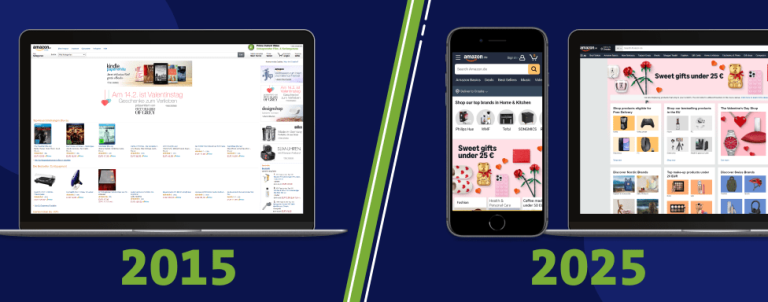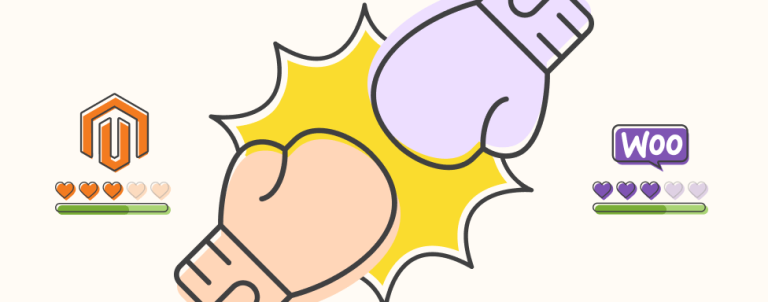For a long time, our only platform of choice was Magento. It was simply the best match for SOHO, SMB and Mid Sized businesses, especially in the Magento 1 era. Ecosystem recognised this and embraced the platform fully, which empowered high growth. It gave our clients a great starting point, security and lots of options. But, a new generation of eCommerce platforms has matured, and we at Inchoo are excited with the possibilities they open.
Magento 2 positioned itself higher on a SMB scale and this created some new gaps/needs in the market. Now, we’re working with two platforms: Magento and Sylius and we feel that these are not direct competitors. Each one has a specific niche to fill. We will always consult our clients towards the selection of platform that is more tailored to their needs. It makes the whole creative process more efficient and the end results are better.
Sylius eCommerce Framework is the newest member of our partner family and platforms that we build stores with, and we couldn’t be more thrilled with that! Its founder, Paweł Jędrzejewski, held a three-day workshop at Inchoo for our specially chosen development team.
What is Sylius all about? Why should merchants pick it as a solution to build their stores? Why should development companies choose it as a platform to develop eCommerce solutions? You can read about that, and learn more in an interview with Pawel.
Hi Pawel, we are honored that you’ve joined us at Inchoo for a couple of days to share your knowledge and train our team for development on Sylius. Were our developers well-behaved?
Absolutely! I think you’ve got a great team, and I had a lot of fun over the last three days! Everyone was following the workshop really smoothly, they were all well prepared. You are the most experienced Magento team that I ever trained, so that’s also a very interesting experience from a perspective of someone who never worked with Magento and built an alternative solution to it. 🙂
Sylius is fully open source, released under the most permissive MIT license. How did you get to the idea/need of developing such an eCommerce framework, and how did the initial development process go?
I would love to say that I woke up one day with that idea, but actually it was a long-term process that was evolving constantly. I started this project purely for my selfish developer’s reasons, where I wanted to write a different type of code, more modern, work with Object Oriented Programming and test everything properly. So I looked around the market, but couldn’t find anything that could satisfy me as a developer. I decided to take upon the challenge and develop something new, that will satisfy business requirements, but would be much more pleasant to work with. For me and also for other developers.
At first I was a lone wolf developing a core code after working as a freelancer for couple of companies on eCommerce projects. I shared it on GitHub, as a open-source, and one day I woke up to an email from a Serbian guy Sasa, who used Sylius to build an audio store for his customers, and couple of weeks later a Senior Developer from a really big company contacted me that they’ve built a closed B2B system with Sylius and that they were really pleased with it. Afterwards the community joined and that was basically it.
Sylius is built on the shoulders of open source giants – PHP and Symfony. Ok, PHP is the most popular programming language of the Web, but what attracted you to Symfony?
I was looking for an eCommerce solution that uses modern development practices, like Object Oriented Programming, component based architecture that allows efficient and proper testing, that also has a high level of modularity. Since I couldn’t find an existing solution that covers all that, I’ve searched for a foundation on top of which I could build my own eCommerce platform, and found Symfony in its early days. It was an alpha version with a small initial documentation, but it got me excited about what they’ve developed so far. And the rest was history.
Some say that Sylius is a breath of fresh air in the PHP community. What is the main “selling point” towards developers who may be considering putting Sylius as a career choice? Why should they choose Sylius (and Symfony) over some other platforms and frameworks?
The world of programming is moving forward really fast. The practices and the tools are evolving. That applies not only to the frameworks, but pretty much to everything. To the languages, to the environments that we deploy our applications to, and so on.
I think you need to look for solutions that can keep up, and not only do a good job at this point of time, but are moving forward as fast as the market is, and follow the trends or even set them! Symfony and Sylius are constantly evolving, moving forward, releasing often and have all the latest best practices of PHP development baked in as a part of the framework.
We are not here to reinvent the wheel, we don’t reinvent our own PHP framework, database abstraction layer, we use the standards that are out there in the market. There are plenty of developers that are not in the eCommerce yet, but already know those standards, so it wouldn’t be a problem for them to switch if they decided to try working in the eCommerce development.
Magento is a well-established open source platform, while Sylius is looking to become a strong contender in the eCommerce market. What do you see as your biggest obstacles and your biggest advantages at this point? Why would a business decision maker choose Sylius over Magento?
Biggest obstacle? I don’t see a huge one. 🙂
Like every young open source project, you encounter this chicken and egg problem. To rephrase – when you have 50 plugins, people want 1000 plugins. But, unless they start building more and more projects on your platform, there will be no 1000 plugins, because we can’t predict everything that they could need. Fortunately, we’re getting past this.
Advantages over Magento? Well, from the technical point of view, Magento, and not only Magento, is moving to modern stock direction. But they are still moving, trying to catch up. We are already there. Pushing forward, being few steps in advantage, being more focused. Not only on the technical side, but also on the business side.
We don’t try to cover the range from the small shops to the biggest. Our focus are medium to big shops that need to be almost fully customized and require a development team to support that. We make sure that this development team gets a proper education, tools and practices to be as productive as possible.
eCommerce got complex in the last 10 years, so it’s a bit naive to think that there is all-in-one solution that will satisfy everyone. We try to make Sylius focused on the purchase process and make it easier to integrate it with the best PIM in the category, the best marketing automation tools, business analytics tools, instead of trying to pack it all into one and advertise it as a full solution.
The competition between platforms is not in the product alone, it’s also a lot in the customer experience they provide and technology they use. Modern retailers and brands are starting to become technology companies that are looking for a partner that is thinking of future, and that is a big advantage for Sylius. We’re not inheriting code that has a huge legacy, we’re making a new one.
Showing @pjedrzejewski, founder of @Sylius the City of #Osijek. Thank you for 3-day training at @inchoo! Cc @OsijekSoftwareC pic.twitter.com/7Fq9KY227x
— Tomislav Bilic (@tomislavbilic) April 21, 2018
We’re glad that we can officially announce that Inchoo has become a Sylius Solution Partner! The timing seems right, the platform is gaining its deserved recognition and adoption from merchants globally. How do you see Inchoo and our role as an official partner?
Inchoo is extremely experienced in eCommerce, but also in community building. With this expertise, you can help us build a stronger ecosystem around Sylius. 🙂 You are bringing a lot of development experience with you, which is of great value for our our platform’s core development, but also for setting up Sylius ecosystem and projects all around the world.
Please, share with us some plans and ambitions for the future. Sylius Multi-Vendor Marketplace is a new solution that you’ll present to the public soon. Can you give us a sneak peek on what else is cooking in there?
On top of our main product, we have built a small layer that makes a Sylius a Multi-Vendor solution.
We have noticed that one of the most popular use-cases for Sylius is a Multi-Vendor solution. Basically, a platform where there is not only a one seller and many buyers, but many sellers and many buyers. These are fairly complex projects, where it’s difficult to provide something from the box. Our framework strategy, where we solved like 80% of the most common problems in developing a solution like that, and leave for about 20% of development that needs to be customized, turned out to be a great strategy for Multi-Vendor solutions. It’s not a plugin, and we are not sharing it with the public just yet as a open-source. We’re sharing it first with our partners, to see if it helps project like this and make improvements along the way.
Thank you Pawel for taking the time to run a hard-core technical workshop with our team. We can’t wait to show to the public what we’re building with Sylius for our clients! All we can say is that it’s going to be top-notch!



